#private web
Explore tagged Tumblr posts
Text
Autoenshittification

Forget F1: the only car race that matters now is the race to turn your car into a digital extraction machine, a high-speed inkjet printer on wheels, stealing your private data as it picks your pocket. Your car’s digital infrastructure is a costly, dangerous nightmare — but for automakers in pursuit of postcapitalist utopia, it’s a dream they can’t give up on.
Your car is stuffed full of microchips, a fact the world came to appreciate after the pandemic struck and auto production ground to a halt due to chip shortages. Of course, that wasn’t the whole story: when the pandemic started, the automakers panicked and canceled their chip orders, only to immediately regret that decision and place new orders.
But it was too late: semiconductor production had taken a serious body-blow, and when Big Car placed its new chip orders, it went to the back of a long, slow-moving line. It was a catastrophic bungle: microchips are so integral to car production that a car is basically a computer network on wheels that you stick your fragile human body into and pray.
The car manufacturers got so desperate for chips that they started buying up washing machines for the microchips in them, extracting the chips and discarding the washing machines like some absurdo-dystopian cyberpunk walnut-shelling machine:
https://www.autoevolution.com/news/desperate-times-companies-buy-washing-machines-just-to-rip-out-the-chips-187033.html
These digital systems are a huge problem for the car companies. They are the underlying cause of a precipitous decline in car quality. From touch-based digital door-locks to networked sensors and cameras, every digital system in your car is a source of endless repair nightmares, costly recalls and cybersecurity vulnerabilities:
https://www.reuters.com/business/autos-transportation/quality-new-vehicles-us-declining-more-tech-use-study-shows-2023-06-22/
What’s more, drivers hate all the digital bullshit, from the janky touchscreens to the shitty, wildly insecure apps. Digital systems are drivers’ most significant point of dissatisfaction with the automakers’ products:
https://www.theverge.com/23801545/car-infotainment-customer-satisifaction-survey-jd-power
Even the automakers sorta-kinda admit that this is a problem. Back in 2020 when Massachusetts was having a Right-to-Repair ballot initiative, Big Car ran these unfuckingbelievable scare ads that basically said, “Your car spies on you so comprehensively that giving anyone else access to its systems will let murderers stalk you to your home and kill you:
https://pluralistic.net/2020/09/03/rip-david-graeber/#rolling-surveillance-platforms
But even amid all the complaining about cars getting stuck in the Internet of Shit, there’s still not much discussion of why the car-makers are making their products less attractive, less reliable, less safe, and less resilient by stuffing them full of microchips. Are car execs just the latest generation of rubes who’ve been suckered by Silicon Valley bullshit and convinced that apps are a magic path to profitability?
Nope. Car execs are sophisticated businesspeople, and they’re surfing capitalism’s latest — and last — hot trend: dismantling capitalism itself.
Now, leftists have been predicting the death of capitalism since The Communist Manifesto, but even Marx and Engels warned us not to get too frisky: capitalism, they wrote, is endlessly creative, constantly reinventing itself, re-emerging from each crisis in a new form that is perfectly adapted to the post-crisis reality:
https://www.nytimes.com/2022/10/31/books/review/a-spectre-haunting-china-mieville.html
But capitalism has finally run out of gas. In his forthcoming book, Techno Feudalism: What Killed Capitalism, Yanis Varoufakis proposes that capitalism has died — but it wasn’t replaced by socialism. Rather, capitalism has given way to feudalism:
https://www.penguin.co.uk/books/451795/technofeudalism-by-varoufakis-yanis/9781847927279
Under capitalism, capital is the prime mover. The people who own and mobilize capital — the capitalists — organize the economy and take the lion’s share of its returns. But it wasn’t always this way: for hundreds of years, European civilization was dominated by rents, not markets.
A “rent” is income that you get from owning something that other people need to produce value. Think of renting out a house you own: not only do you get paid when someone pays you to live there, you also get the benefit of rising property values, which are the result of the work that all the other homeowners, business owners, and residents do to make the neighborhood more valuable.
The first capitalists hated rent. They wanted to replace the “passive income” that landowners got from taxing their serfs’ harvest with active income from enclosing those lands and grazing sheep in order to get wool to feed to the new textile mills. They wanted active income — and lots of it.
Capitalist philosophers railed against rent. The “free market” of Adam Smith wasn’t a market that was free from regulation — it was a market free from rents. The reason Smith railed against monopolists is because he (correctly) understood that once a monopoly emerged, it would become a chokepoint through which a rentier could cream off the profits he considered the capitalist’s due:
https://locusmag.com/2021/03/cory-doctorow-free-markets/
Today, we live in a rentier’s paradise. People don’t aspire to create value — they aspire to capture it. In Survival of the Richest, Doug Rushkoff calls this “going meta”: don’t provide a service, just figure out a way to interpose yourself between the provider and the customer:
https://pluralistic.net/2022/09/13/collapse-porn/#collapse-porn
Don’t drive a cab, create Uber and extract value from every driver and rider. Better still: don’t found Uber, invest in Uber options and extract value from the people who invest in Uber. Even better, invest in derivatives of Uber options and extract value from people extracting value from people investing in Uber, who extract value from drivers and riders. Go meta.
This is your brain on the four-hour-work-week, passive income mind-virus. In Techno Feudalism, Varoufakis deftly describes how the new “Cloud Capital” has created a new generation of rentiers, and how they have become the richest, most powerful people in human history.
Shopping at Amazon is like visiting a bustling city center full of stores — but each of those stores’ owners has to pay the majority of every sale to a feudal landlord, Emperor Jeff Bezos, who also decides which goods they can sell and where they must appear on the shelves. Amazon is full of capitalists, but it is not a capitalist enterprise. It’s a feudal one:
https://pluralistic.net/2022/11/28/enshittification/#relentless-payola
This is the reason that automakers are willing to enshittify their products so comprehensively: they were one of the first industries to decouple rents from profits. Recall that the reason that Big Car needed billions in bailouts in 2008 is that they’d reinvented themselves as loan-sharks who incidentally made cars, lending money to car-buyers and then “securitizing” the loans so they could be traded in the capital markets.
Even though this strategy brought the car companies to the brink of ruin, it paid off in the long run. The car makers got billions in public money, paid their execs massive bonuses, gave billions to shareholders in buybacks and dividends, smashed their unions, fucked their pensioned workers, and shipped jobs anywhere they could pollute and murder their workforce with impunity.
Car companies are on the forefront of postcapitalism, and they understand that digital is the key to rent-extraction. Remember when BMW announced that it was going to rent you the seatwarmer in your own fucking car?
https://pluralistic.net/2020/07/02/big-river/#beemers
Not to be outdone, Mercedes announced that they were going to rent you your car’s accelerator pedal, charging an extra $1200/year to unlock a fully functional acceleration curve:
https://www.theverge.com/2022/11/23/23474969/mercedes-car-subscription-faster-acceleration-feature-price
This is the urinary tract infection business model: without digitization, all your car’s value flowed in a healthy stream. But once the car-makers add semiconductors, each one of those features comes out in a painful, burning dribble, with every button on that fakakta touchscreen wired directly into your credit-card.
But it’s just for starters. Computers are malleable. The only computer we know how to make is the Turing Complete Von Neumann Machine, which can run every program we know how to write. Once they add networked computers to your car, the Car Lords can endlessly twiddle the knobs on the back end, finding new ways to extract value from you:
https://doctorow.medium.com/twiddler-1b5c9690cce6
That means that your car can track your every movement, and sell your location data to anyone and everyone, from marketers to bounty-hunters looking to collect fees for tracking down people who travel out of state for abortions to cops to foreign spies:
https://www.vice.com/en/article/n7enex/tool-shows-if-car-selling-data-privacy4cars-vehicle-privacy-report
Digitization supercharges financialization. It lets car-makers offer subprime auto-loans to desperate, poor people and then killswitch their cars if they miss a payment:
https://www.youtube.com/watch?v=4U2eDJnwz_s
Subprime lending for cars would be a terrible business without computers, but digitization makes it a great source of feudal rents. Car dealers can originate loans to people with teaser rates that quickly blow up into payments the dealer knows their customer can’t afford. Then they repo the car and sell it to another desperate person, and another, and another:
https://pluralistic.net/2022/07/27/boricua/#looking-for-the-joke-with-a-microscope
Digitization also opens up more exotic options. Some subprime cars have secondary control systems wired into their entertainment system: miss a payment and your car radio flips to full volume and bellows an unstoppable, unmutable stream of threats. Tesla does one better: your car will lock and immobilize itself, then blare its horn and back out of its parking spot when the repo man arrives:
https://tiremeetsroad.com/2021/03/18/tesla-allegedly-remotely-unlocks-model-3-owners-car-uses-smart-summon-to-help-repo-agent/
Digital feudalism hasn’t stopped innovating — it’s just stopped innovating good things. The digital device is an endless source of sadistic novelties, like the cellphones that disable your most-used app the first day you’re late on a payment, then work their way down the other apps you rely on for every day you’re late:
https://restofworld.org/2021/loans-that-hijack-your-phone-are-coming-to-india/
Usurers have always relied on this kind of imaginative intimidation. The loan-shark’s arm-breaker knows you’re never going to get off the hook; his goal is in intimidating you into paying his boss first, liquidating your house and your kid’s college fund and your wedding ring before you default and he throws you off a building.
Thanks to the malleability of computerized systems, digital arm-breakers have an endless array of options they can deploy to motivate you into paying them first, no matter what it costs you:
https://pluralistic.net/2021/04/02/innovation-unlocks-markets/#digital-arm-breakers
Car-makers are trailblazers in imaginative rent-extraction. Take VIN-locking: this is the practice of adding cheap microchips to engine components that communicate with the car’s overall network. After a new part is installed in your car, your car’s computer does a complex cryptographic handshake with the part that requires an unlock code provided by an authorized technician. If the code isn’t entered, the car refuses to use that part.
VIN-locking has exploded in popularity. It’s in your iPhone, preventing you from using refurb or third-party replacement parts:
https://doctorow.medium.com/apples-cement-overshoes-329856288d13
It’s in fuckin’ ventilators, which was a nightmare during lockdown as hospital techs nursed their precious ventilators along by swapping parts from dead systems into serviceable ones:
https://www.vice.com/en/article/3azv9b/why-repair-techs-are-hacking-ventilators-with-diy-dongles-from-poland
And of course, it’s in tractors, along with other forms of remote killswitch. Remember that feelgood story about John Deere bricking the looted Ukrainian tractors whose snitch-chips showed they’d been relocated to Russia?
https://doctorow.medium.com/about-those-kill-switched-ukrainian-tractors-bc93f471b9c8
That wasn’t a happy story — it was a cautionary tale. After all, John Deere now controls the majority of the world’s agricultural future, and they’ve boobytrapped those ubiquitous tractors with killswitches that can be activated by anyone who hacks, takes over, or suborns Deere or its dealerships.
Control over repair isn’t limited to gouging customers on parts and service. When a company gets to decide whether your device can be fixed, it can fuck you over in all kinds of ways. Back in 2019, Tim Apple told his shareholders to expect lower revenues because people were opting to fix their phones rather than replace them:
https://www.apple.com/newsroom/2019/01/letter-from-tim-cook-to-apple-investors/
By usurping your right to decide who fixes your phone, Apple gets to decide whether you can fix it, or whether you must replace it. Problem solved — and not just for Apple, but for car makers, tractor makers, ventilator makers and more. Apple leads on this, even ahead of Big Car, pioneering a “recycling” program that sees trade-in phones shredded so they can’t possibly be diverted from an e-waste dump and mined for parts:
https://www.vice.com/en/article/yp73jw/apple-recycling-iphones-macbooks
John Deere isn’t sleeping on this. They’ve come up with a valuable treasure they extract when they win the Right-to-Repair: Deere singles out farmers who complain about its policies and refuses to repair their tractors, stranding them with six-figure, two-ton paperweight:
https://pluralistic.net/2022/05/31/dealers-choice/#be-a-shame-if-something-were-to-happen-to-it
The repair wars are just a skirmish in a vast, invisible fight that’s been waged for decades: the War On General-Purpose Computing, where tech companies use the law to make it illegal for you to reconfigure your devices so they serve you, rather than their shareholders:
https://memex.craphound.com/2012/01/10/lockdown-the-coming-war-on-general-purpose-computing/
The force behind this army is vast and grows larger every day. General purpose computers are antithetical to technofeudalism — all the rents extracted by technofeudalists would go away if others (tinkereres, co-ops, even capitalists!) were allowed to reconfigure our devices so they serve us.
You’ve probably noticed the skirmishes with inkjet printer makers, who can only force you to buy their ink at 20,000% markups if they can stop you from deciding how your printer is configured:
https://pluralistic.net/2022/08/07/inky-wretches/#epson-salty But we’re also fighting against insulin pump makers, who want to turn people with diabetes into walking inkjet printers:
https://pluralistic.net/2022/06/10/loopers/#hp-ification
And companies that make powered wheelchairs:
https://pluralistic.net/2022/06/08/chair-ish/#r2r
These companies start with people who have the least agency and social power and wreck their lives, then work their way up the privilege gradient, coming for everyone else. It’s called the “shitty technology adoption curve”:
https://pluralistic.net/2022/08/21/great-taylors-ghost/#solidarity-or-bust
Technofeudalism is the public-private-partnership from hell, emerging from a combination of state and private action. On the one hand, bailing out bankers and big business (rather than workers) after the 2008 crash and the covid lockdown decoupled income from profits. Companies spent billions more than they earned were still wildly profitable, thanks to those public funds.
But there’s also a policy dimension here. Some of those rentiers’ billions were mobilized to both deconstruct antitrust law (allowing bigger and bigger companies and cartels) and to expand “IP” law, turning “IP” into a toolsuite for controlling the conduct of a firm’s competitors, critics and customers:
https://locusmag.com/2020/09/cory-doctorow-ip/
IP is key to understanding the rise of technofeudalism. The same malleability that allows companies to “twiddle” the knobs on their services and keep us on the hook as they reel us in would hypothetically allow us to countertwiddle, seizing the means of computation:
https://pluralistic.net/2023/04/12/algorithmic-wage-discrimination/#fishers-of-men
The thing that stands between you and an alternative app store, an interoperable social media network that you can escape to while continuing to message the friends you left behind, or a car that anyone can fix or unlock features for is IP, not technology. Under capitalism, that technology would already exist, because capitalists have no loyalty to one another and view each other’s margins as their own opportunities.
But under technofeudalism, control comes from rents (owning things), not profits (selling things). The capitalist who wants to participate in your iPhone’s “ecosystem” has to make apps and submit them to Apple, along with 30% of their lifetime revenues — they don’t get to sell you jailbreaking kit that lets you choose their app store.
Rent-seeking technology has a holy grail: control over “ring zero” — the ability to compel you to configure your computer to a feudalist’s specifications, and to verify that you haven’t altered your computer after it came into your possession:
https://pluralistic.net/2022/01/30/ring-minus-one/#drm-political-economy
For more than two decades, various would-be feudal lords and their court sorcerers have been pitching ways of doing this, of varying degrees of outlandishness.
At core, here’s what they envision: inside your computer, they will nest another computer, one that is designed to run a very simple set of programs, none of which can be altered once it leaves the factory. This computer — either a whole separate chip called a “Trusted Platform Module” or a region of your main processor called a secure enclave — can tally observations about your computer: which operating system, modules and programs it’s running.
Then it can cryptographically “sign” these observations, proving that they were made by a secure chip and not by something you could have modified. Then you can send this signed “attestation” to someone else, who can use it to determine how your computer is configured and thus whether to trust it. This is called “remote attestation.”
There are some cool things you can do with remote attestation: for example, two strangers playing a networked video game together can use attestations to make sure neither is running any cheat modules. Or you could require your cloud computing provider to use attestations that they aren’t stealing your data from the server you’re renting. Or if you suspect that your computer has been infected with malware, you can connect to someone else and send them an attestation that they can use to figure out whether you should trust it.
Today, there’s a cool remote attestation technology called “PrivacyPass” that replaces CAPTCHAs by having you prove to your own device that you are a human. When a server wants to make sure you’re a person, it sends a random number to your device, which signs that number along with its promise that it is acting on behalf of a human being, and sends it back. CAPTCHAs are all kinds of bad — bad for accessibility and privacy — and this is really great.
But the billions that have been thrown at remote attestation over the decades is only incidentally about solving CAPTCHAs or verifying your cloud server. The holy grail here is being able to make sure that you’re not running an ad-blocker. It’s being able to remotely verify that you haven’t disabled the bossware your employer requires. It’s the power to block someone from opening an Office365 doc with LibreOffice. It’s your boss’s ability to ensure that you haven’t modified your messaging client to disable disappearing messages before he sends you an auto-destructing memo ordering you to break the law.
And there’s a new remote attestation technology making the rounds: Google’s Web Environment Integrity, which will leverage Google’s dominance over browsers to allow websites to block users who run ad-blockers:
https://github.com/RupertBenWiser/Web-Environment-Integrity
There’s plenty else WEI can do (it would make detecting ad-fraud much easier), but for every legitimate use, there are a hundred ways this could be abused. It’s a technology purpose-built to allow rent extraction by stripping us of our right to technological self-determination.
Releasing a technology like this into a world where companies are willing to make their products less reliable, less attractive, less safe and less resilient in pursuit of rents is incredibly reckless and shortsighted. You want unauthorized bread? This is how you get Unauthorized Bread:
https://arstechnica.com/gaming/2020/01/unauthorized-bread-a-near-future-tale-of-refugees-and-sinister-iot-appliances/amp/

If you'd like an essay-formatted version of this thread to read or share, here's a link to it on pluralistic.net, my surveillance-free, ad-free, tracker-free blog:
https://pluralistic.net/2023/07/24/rent-to-pwn/#kitt-is-a-demon

[Image ID: The interior of a luxury car. There is a dagger protruding from the steering wheel. The entertainment console has been replaced by the text 'You wouldn't download a car,' in MPAA scare-ad font. Outside of the windscreen looms the Matrix waterfall effect. Visible in the rear- and side-view mirror is the driver: the figure from Munch's 'Scream.' The screen behind the steering-wheel has been replaced by the menacing red eye of HAL9000 from Stanley Kubrick's '2001: A Space Odyssey.']

Image: Cryteria (modified) https://commons.wikimedia.org/wiki/File:HAL9000.svg
CC BY 3.0 https://creativecommons.org/licenses/by/3.0/deed.en
#pluralistic#shitty technology adoption curve#unauthorized bread#automotive#arm-breakers#cars#big car#right to repair#rent-seeking#digital feudalism#neofeudalism#drm#wei#remote attestation#private access tokens#yannis varoufakis#web environment integrity#paternalism#war on general purpose computing#competitive compatibility#google#enshittification#interoperability#adversarial interoperability#comcom#the internet con#postcapitalism#ring zero#care#med-tech
4K notes
·
View notes
Text
river phoenix and keanu reeves talking about each other
"I've always loved you, River. River is my best friend and I don't have many of them." - Keanu "That's really sweet, Keany." - River
"Every evening that we don't spend together we're on the phone." - Keanu
"He's beautiful, inventive, funny and creative, too." - Keanu
"I really would like to do Shakespeare with River. I think we’d have a hoot. We could do A Midsummer Night’s Dream or Romeo and Juliet." - Keanu "I���ll be Juliet." - River
"Meeting River was a revelation." - Keanu
"There was a lot of deep love." - River (about "Private Idaho")
"We brought good out in each other." - Keanu
"River's the best, he's a god, he's the king. I pray to the church of River Phoenix!" - Keanu
"(After a long silence) River was an exceptional person, incredible. Where is my Juliet? Bullshit. Fuck! (After another long silence) He was a really good guy." - Keanu
"I don't have any friends in the business. Just River. Oh where, oh where has my Juliet gone?" - Keanu
"I don't know what I'm going to do when I get older, do you, Keany?" - River "I'd like to maybe get a boat someday and sail around. Maybe I'll settle down and I'll raise a family. I've always wanted kids." - Keanu "I didn't know that --" - River "You never asked, dude." - Keanu "I really want kids too." - River
"It’s weird speaking about him in the past. I hate speaking about him in the past. So I almost always gotta keep it present." - Keanu
"I liked the guy and wanted to work with him." - River
"Keany, he's a sweetheart. People don't understand him." - River
BONUS: "Keanu and River were kind of soulmates, they had known each other for a few years… but they were." - Gus Van Sant
BONUS: "Suddenly he and Reeves are off, excitedly exploring the possibility of doing Shakespeare together. They stand nose to nose- Phoenix newly bleached blond as part of his bid to play the young Andy Warhol in a future Van Sant biopic, Reeves dark-haired and tanned- like positive and negative images of each other. They sustain their banter throughout the meal, as one interrupts the other, but only to complete his thought." - Interview Magazine
BONUS: "I watched how Keanu grieved. And oh, did he grieve for his friend. He’s very private, but he couldn’t hide that. And just to see that a man like that was able to grieve. And I remember thinking, God, if that’s the tip of the iceberg of his depth, and his level of love and care for a friend—that just draws you in." - Sandra Bullock
BONUS: "Talking about Phoenix, Reeves has one of what he calls his “excellent panic attacks”, and his china-doll complexion becomes whiter than white; his brown eyes turn black. Time to change the subject." - SKY Magazine
#girl blogging#i am just a girl#i am a simple woman#missy kitty posting#web finds#rivvy baby#keany#river phoenix#river jude phoenix#keanu reeves#keanu#private idaho#magazines#sandra bullock#i am a woman like her#gus van sant#FINALLY DONE#baby fever tag
168 notes
·
View notes
Text
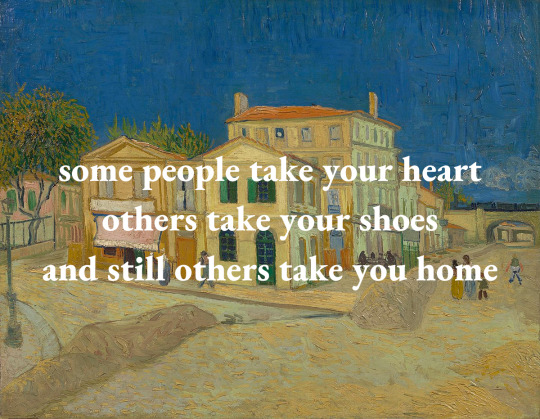











on friendship
text: my own private idaho (1991), painting: vincent van gogh, the yellow house, 1888 // vincent van gogh, shoes, 1888 // vincent van gogh's letter to paul gauguin, october 1888 // text: aristotle, painting: pinterest // @dacuslucy // erica mao // henri de toulouse-lautrec, the two friends, 1894 // @brain--rott // @kafk-a // anne magill, smitten //@honeytuesday // albert camus
#on friendship#for rowyn#web weavings#webweave#van gogh#albert camus#my own private idaho#art history#literature#poetry#dark academia#this is a girlblog#girlblogging#hell is a teenage girl#lana del rey#lana del ray aka lizzy grant#lizzy grant#female hysteria#girlhood#art#multimedia#this is what makes us girls#just girly things#friendship#aroace#love#artists on tumblr#artwork#aesthetic#pinterest
278 notes
·
View notes
Text
Locomotion Web Graphics
Source: web.archive.org
















Since the channel went defunct and replaced by animax back in 2005, free feel to use
#locomotion#locomotion tv#tv channel#defunct tv channel#defunct channel#duckman#duckman private dick family man#super milk chan#milk chan#ren and stimpy#south park#serial experiments lain#rentry graphics#old web graphics#web graphics#graphics#webcore#old web#early 2000s#early internet#old internet#internetcore#2000s web#strawpage#strawpage resources#rentry resources#carrd resources#web resources#carrd graphics#carrd decor
147 notes
·
View notes
Text
I told a friend to keep an eye on their banks/cards because people are getting caught up in that recent data breach, and their response was,
“This is all capitalism’s fault.”
And I … err … is it??
#like by all means#blame capitalism for evils it has actually perpetrated#but we don’t have real capitalism rn#we have a corporatocracy#and also I don’t think either thing is responsible#for some dipshit putting all my private info on the web#that has nothing to do with the free market#people just suck#also the fucking chode who stole my card#and tried to buy 5 pizzas and an airline ticket#was probably not motivated by capitalistic ideals???
176 notes
·
View notes
Text
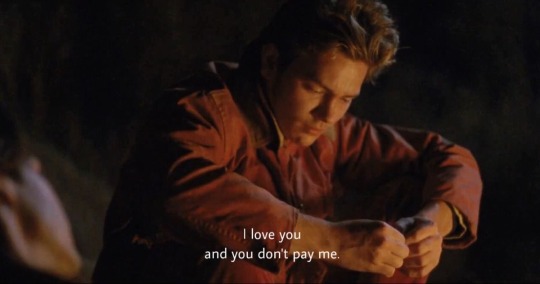

my own private idaho // my love mine all mine by mitski
no one cares ab this except me but i just had to scream ab it
#literally the first thing i thought of when i listened to the song#mitski ur BRAIN#mitski#my love mine all mine#my own private idaho#idk if this counts as web weaving lmao but im gna tag it anyway#web weaving#anyways ignore me just being sad and gay and yearning as per usual#mimi speaks
533 notes
·
View notes
Text







have a good day :3
my own private idaho + jayvik
#jayvik#my own private idaho#web weaving#webweaving#jayce talis#viktor arcane#arcane#keanu reeves#river phoenix#vikjayce
68 notes
·
View notes
Text
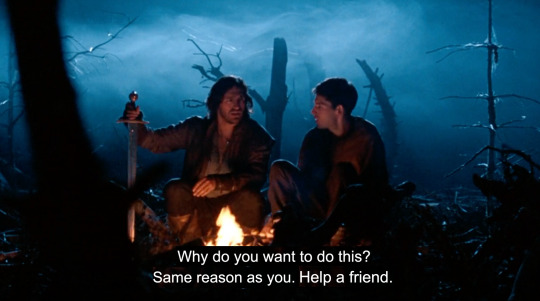


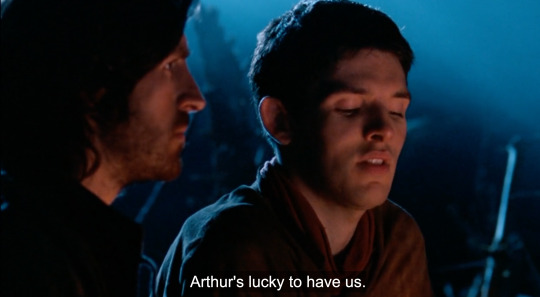


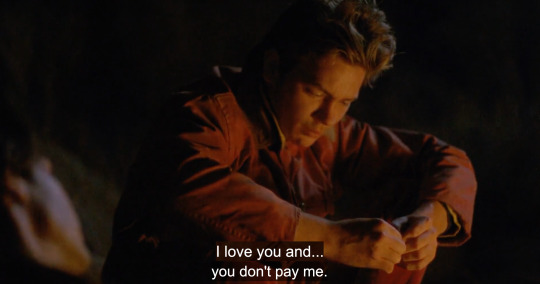





We're good friends. And it's good to be, you know, good friends. // You're the only friend I've got.
#im having a normal one thanks for asking x#my own private idaho#gwaine x merlin#bbcm#merwaine#bbc merlin#mergwaine#gwaine#bbc gwaine#he makes me. SAD#web weaving
120 notes
·
View notes
Text

Front Porch Step / Private Fears In Public Places
#love quotes#love#words#fragments#frases#poetry#writing#web weaving#front porch step#private fears in public places#lyrics#lyric posting#lyric edit#lyric quotes#typography
103 notes
·
View notes
Text













Because what’s worse than knowing you want something, besides knowing you can never have it?
[fireball whiskey, angie mcmahon || my private idaho, dir. gus van sant || the picture of dorian grey, oscar wild || letters from medea, salma deera || the next time we talk on facebook, clementine von radics || crush, richard siken || fleabag, s2e6 || ceilings, lizzy mcalpine || you'll stop replying soon anyway, j.e.o via jodyohsnap || the angel experiment, james patterson]
#web weaving#I've never done a request for a web weave so i hope you like it anon!#literature#angie mcmahon#gus van sant#oscar wild#salma deera#fleabag#my private idaho#clementine von radics#richard siken#james patterson#lizzy mcalpine#unrequited love#love
108 notes
·
View notes
Text
damn it’s been a while, i really didn’t realize how long. hi!
27 notes
·
View notes
Text

#the banners say privatization of municipal property#idk why#2000s nostalgia#2000s aesthetic#2000s blog#2000s internet#2000s web#webcore#web art#web animation#gif art#early internet#early web#ancient internet#web archive#internet archive
64 notes
·
View notes
Text
okay none of this is coherent bc i'm on the verge of sleep at 9pm rn but that right hand man as dog post literally has my gears turning bc that's mitch fucking marner bro. that's mitch and there are so many levels to it. mitch who has made his whole career being the assist guy... takes pride in the fact that he can help the team even if that results in his point accumulation seeming lesser bc they're not goals. taking advantage of the skills and iq he possesses to try to make the people around him better and literally set them up for success...always the first one there to congratulate them on it too.... literally naming his whole foundation the marner assist foundation bc he embraces that role on a team with a generational goal scorer who's made it clear he wants to play with MITCH and appreciates mitch's talent and communication. like. actually his right winger... his right hand man. okay and even happy with being the second best, as he's been for large portions of his life w an older bro who's good at everything right on into a stacked draft class.
and mitch personality wise gets the dog description sometimes too. loyal, happy go lucky, wants to be around his guys all the time, and it's where he's the happiest and thrives the most. he's energetic, he's buzzin, he's willing to entertain, he's the life and love in that room in so many ways that are loud.... that bark but don't necessarily bite (THOUGH THEY CAN BITE. criticism can be doled out and taken as long as it's from the right places with him) but like. especially when he was younger too, he was literally the team emotional support puppy who loved cuddles and attention and with age comes protection from the outside a little bit..,. dialing back what he's willing to show or admit to people on the outside but it's still there and what keeps the camaraderie alive despite an ever rotating roster. and i kNOW. i know. so much dog imagery and symbolism has to do with being protective and fierce, and in hockey for mitch that doesn't necessarily translate on the ice the same way bc he's not big and rough and physically forward the way some people wish he was, but he probably would take a bullet for most of those guys. and in ways, he has taken on the shield or become the punching bag... he was with babcock, he's taken on the scapegoat with media so a lot of critique is thrown squarely at him for group failure. he's the martyr even if that's not exactly what he signed up for.
he's grown more guarded but he's LITERALLY. literally. a dog. a dawg. auston's dawg.... their dawg. the epitome of lots of good things about hockey culture (and i'm sure some bad too), but he embodies so much of the loyalty.. the side kick.. the best friend energy in some ways.... it makes me emo. and....... and to think of him with his own dog trying to recreate unbridled joy from his childhood (cut to those pics of him as a kid w his chocolate lab vs him now w zeus).... like he's desperate for love and recognition of his loyalty and companionship. he's gotten used to being second fiddle, not necessarily in any resentful way but like. these past few weeks he's kind of gotten to step up and be the guy™. he's the heartbeat...... the dog's not usually meant to be the main character but maybe he is worthy of it.
#mitch marner#all of that to say: good boy#anyway none of this means anything im just rambling n sentimental and pmsing an d images arre flashing in my head rrn like#theres web weaving nonsense in there somewhere but idk if therres a tight enough conclusion to draw to make it so but.#also lead me to violent imageyr but ill save that in my brain but im just saying#martyrdom is real sometimes.#klfdsjklfsjkdl#he will NOT be the sacrifice on this fucking team orr ill burn that city to the ground no problem lol#this is a semi oversimplification of some parts of his personality but obviously. we do not know him.#BUT HIS JOURNEY. IS THE JOURNEY OF THE SECOND BEST WHO TAKES A LOT OF HEAT. AND A LOT OF BLAME. in the shadow of the person he loves#its main charracter enerrgy even if the dog rarely is#i feel like therre was a pivot in media for a while w a shift to charracters that were morre like. Side role archetypes like#anyway.#help is this nonsense everryone look away#m like that lisa meme#tumblr is my own private journal where i put together the least academic thoughts imaginable soryr abt that
31 notes
·
View notes
Text
currently thinking about how you can’t examine addison’s relationships with men without considering the fact that she was conditioned her whole life to make excuses for the behavior of the men in her life
#don’t mind me i’m just thinking way too much about addison’s childhood trauma again#like not even just with her father and that whole tangled web of lies#but the way she casually excuses a lot of archers behavior#addison montgomery#greys anatomy#private practice
38 notes
·
View notes
Text






original 'my own private idaho' script, gus van sant // the dream thieves & the raven king, maggie stiefvater
#what i'm saying is adansey mopi au#trc#the raven cycle#my own private idaho#mopi#richard campbell gansey iii#adam parrish#ronan lynch#blue sargent#mine#web weaving
150 notes
·
View notes





